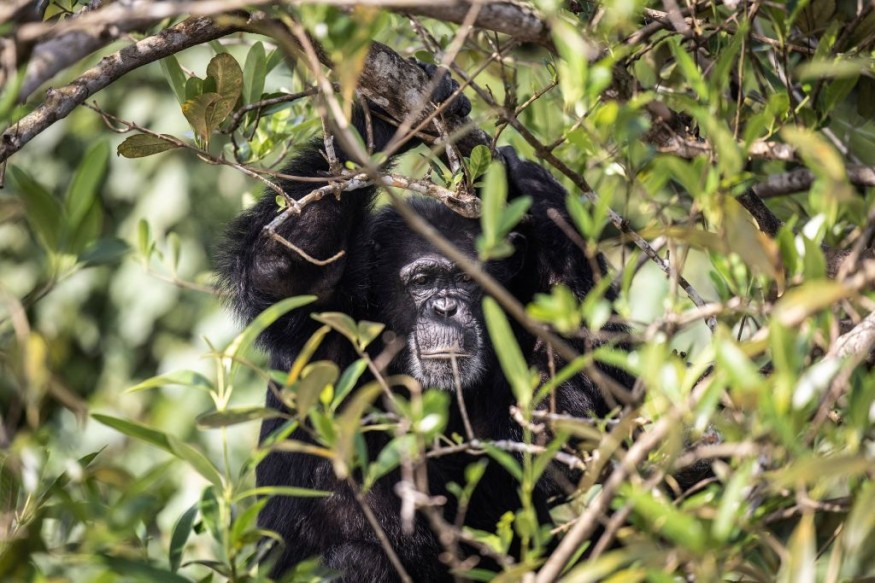Chimpanzees were observed by scientists applying insects on their open wounds and the wounds of other chimpanzees.
Although other animals are known to use plants as a form of self-medication, the recent observation is the first known behavior of animals using insects in treating wounds.
It is for this reason that scientists described the chimpanzees' usage of insects for wound medication as a surprising behavior.
The observations were published in a new study this week, highlighting that there are still mysterious animal behaviors waiting to be discovered.
Insects and Treating Wounds

Scientists published their new study on this unusual chimpanzee behavior in the journal Current Biology on Monday, Feb. 7.
The study sheds light for the first time on the extent of the social behavior of chimpanzees of not only treating themselves but also showing empathy to other chimps.
The study was conducted by a research team from Osnabruck University in Germany.
The team observed around 45 chimpanzees in a community living in the Loango National Park in Gabon. They conducted the study from November 2019 until February 2022.
Among the 45 chimpanzees, the researchers found 19 chimps would catch a small-winged insect and put it between their lips. The chimpanzees would then rub the insects on their open wounds, and then remove the insects.
Also read : New Study Reveals Chimpanzees Pass on Their Knowledge to Next Generation, Just Like Humans
Ozouga Chimpanzee Project
The team first observed the surprising behavior of the primates at the Loango National Park, which is home to the so-called "Ozouga Chimpanzee Project."
The project is led by Tobias Deschner, a primatologist, and Simone Pika, a cognitive biologist professor at Osnabruck University.
Alessandra Mascaro, a volunteer on the project, was the first one to observe the unusual behavior of chimpanzees that she discoveted through a recorded video footage of the chimps.
She watched a female chimpanzee apply an insect to her son's wounded foot.
A student also observed an adult male chimpanzee using insects in treating wounds, as per New Scientist.
Pika stated the observation was an amazing discovery.
Small-Winged Insects, Another Medicinal Source?
According to the new study, instances of self-medication have been observed in the past with other animals, including bears, elephants, moths, and starlings.
Two decades ago, researchers observed captive chimpanzees swallowing and eating leaves that contain chemical properties to kill intestinal parasites, according to a separate study published in the journal Primates in 2004.
Researchers from the study in 2004 supported the hypothesis that leaf swallowing amongst the group of captive chimpanzees they observed was acquired in the wild from opportunistic feeding behavior.
However, this was later passed down traditionally as a means for self-medication.
This is the reason why the researchers from the new study found the chimpanzees' recently observed self-medication as a surprising social behavior.
In spite of this breakthrough discovery, it is still unclear why the chimpanzees use small-winged insects for treating wounds.
Related article : Decrypting the Meanings of Chimpanzee Chatter
© 2025 NatureWorldNews.com All rights reserved. Do not reproduce without permission.





